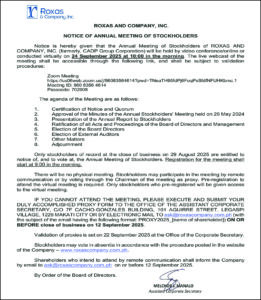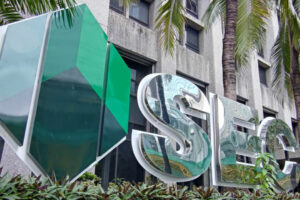THE Securities and Exchange Commission (SEC) said the 20% tax on long-term deposit interest under the newly implemented Capital Markets Efficiency Promotion Act (CMEPA) is not a new levy but part of a standardization move.
The corporate regulator said the 20% tax on interest income from long-term deposits under the CMEPA has “standardized the tax rate across investment instruments.”
“The new law merely standardizes the tax on interest income for all types of deposits,” SEC Chairperson Francisco Ed. Lim said in an e-mailed statement over the weekend.
“The tax code previously discriminated against short-term deposits by unduly burdening them just because they cannot keep cash in banks for longer periods,” he added.
The SEC issued the statement after the CMEPA faced backlash for removing the tax exemption previously enjoyed by long-term deposits.
With the new law, interest income from deposit products — including savings deposits, time deposits, deposit substitutes, trust funds, negotiable certificates of deposit, and similar financial instruments — now faces a uniform final withholding tax of 20%, regardless of holding period.
Prior to the CMEPA, interest earned from time deposits with a term of five years or more was tax-exempt. Time deposits of more than three years but less than five years also enjoyed varying preferential rates.
Mr. Lim said the lower stock transaction tax (STT) under the CMEPA is also expected to generate more savings for investments, which would help improve stock market liquidity.
The CMEPA slashed the STT to 0.1% from 0.6%. The previous rate was the highest in the Association of Southeast Asian Nations (ASEAN).
“The previous rate had the effect of discouraging the public from investing in the stock market, especially those who may want to engage in bulk transactions. With the lower tax, the savings that investors get can be reinvested back to the capital market,” Mr. Lim said.
“The reduced STT is one of the most important reforms under the CMEPA, as it brings the rate in the Philippines at par with our peers in ASEAN,” he added.
Investment & Capital Corp. of the Philippines President and Chief Operating Officer Jesus Mariano “Manny” P. Ocampo said the CMEPA has already helped improve market liquidity since it took effect.
“Following the implementation of CMEPA, average daily trading value jumped from P6.8 billion in June to P10.6 billion in early July. That’s a 50% increase, suggesting improved liquidity and renewed interest among investors,” he said in a separate statement.
The CMEPA is also expected to entice more Filipinos to increase their retirement funds through Republic Act No. 9505, or the Personal Equity and Retirement Account (PERA), by enabling employers to claim an additional 50% tax deduction for PERA contributions, provided they match or exceed the employee’s contribution.
Other provisions under the CMEPA include the harmonization of the capital gains tax to a flat 15% on shares of foreign corporations and the reduction of the documentary stamp tax on the original issuance of shares of stock to 0.75% from 1% of par value. — Revin Mikhael D. Ochave


















